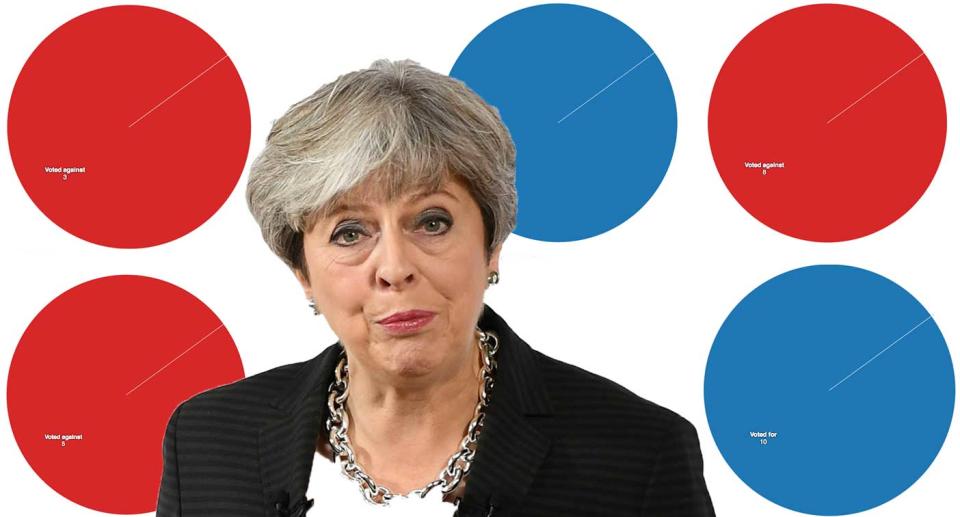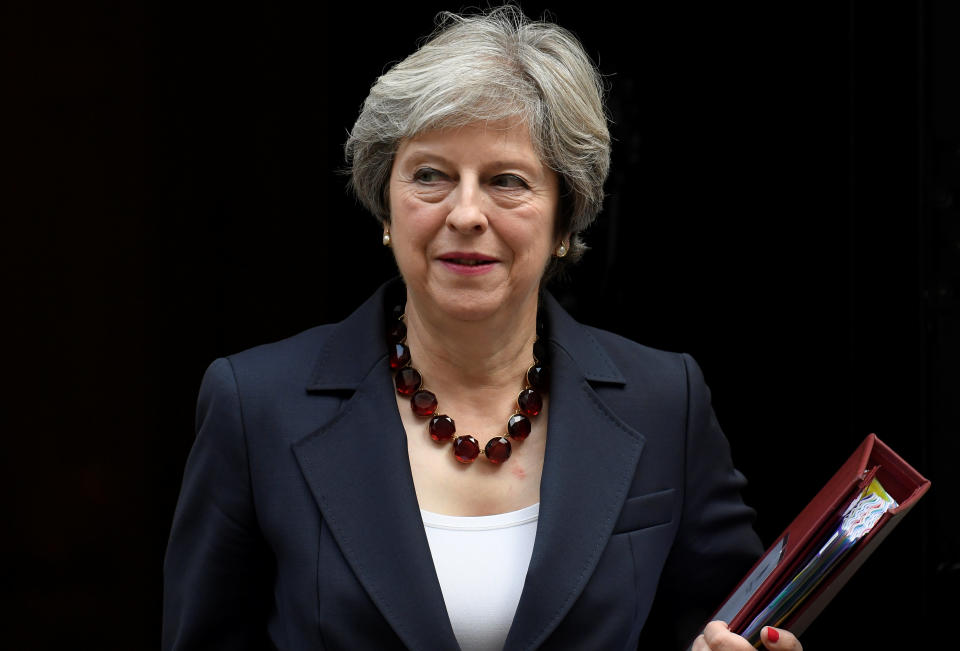Theresa May has literally never voted in favour of increasing benefits

Theresa May has never voted in favour of increasing benefits during her time as an MP.
As Prime Minister faces widespread criticism for the rollout of the Universal Credit benefits policy, her record shows that she has consistently voted against raising welfare benefits and increasing disability benefits.
Mrs May’s flagship welfare policy has been slammed for causing ‘acute financial difficulty’ for a number of claimants forced to wait weeks for their first payout.
How Theresa May voted

A striking chart shows that Mrs May has voted against raising welfare benefits at least in line with prices five time. She has never voted in favour.

The PM’s record on reducing spending on welfare benefits is just as consistent. She has voted to reduce overall spending 36 times, and has never voted against reducing spending.

Another clean sheet on her voting record – she has voted against paying higher benefits over longer periods for people unable to work because of illness or disability eight times and voted in favour no times.

Another block-coloured graph shows Theresa May’s history of votes on reducing housing benefits for social tenants deemed to have excess bedrooms – dubbed ‘the bedroom tax’.
The Prime Minister has been consistently in favour of the bedroom tax.

The Conservative leader has always voted against spending public money to create guaranteed jobs for young people who have spent a long time unemployed.
Universal Credit controversy
Mrs May is currently under fire over her Government’s Universal Credit benefits rollout.
The policy has been hit by controversy after claimants faced weeks-long delays receiving payments.
The cross-party Work and Pensions Select Committee said cutting the waiting time would remove a “major obstacle” to the success of the policy.

The delay between people making a claim and receiving their first payment is designed to mimic waiting for a first pay cheque after starting a job.
But Tory Work and Pensions Committee member Heidi Allen said: “Despite the clear support for Universal Credit, there is cross-party recognition that the six week wait does not honour the original intentions of the system.
Most popular on Yahoo News UK
Theresa May’s Brexit plan has left the UK ‘screwed’, says former ambassador
An embarrassing photo from 2016 has come back to haunt Hillary Clinton
North Korea’s nuclear bomb threat ‘should be taken literally’
Police ‘underestimated scale of disorder’ when travellers arrived in seaside town of Cromer
Here are some of the most outrageous JFK conspiracy theories
“To truly represent the world of work, the payment cycle must mirror how the majority of people are paid i.e. monthly.
“Universal Credit will only be the success it deserves to be if it works with claimants to find work, and not against them.”
Mrs May defended the UC programme at Prime Minister’s Questions on Wednesday under pressure from Labour leader Jeremy Corbyn.
She acknowledged that people had raised concerns with UC and stressed “we have been listening to those and changes have been made”.
The programme is aimed at replacing six different benefits with a single payment, making the system simpler to understand and administer.
Some 8% of current benefits claimants are on UC, which will increase to 10% by the end of January with the roll-out due to be completed by 2022.
Work and Pension Committee chairman Frank Field said the waiting period for the first payment was “cruel”.

 Yahoo News
Yahoo News 
